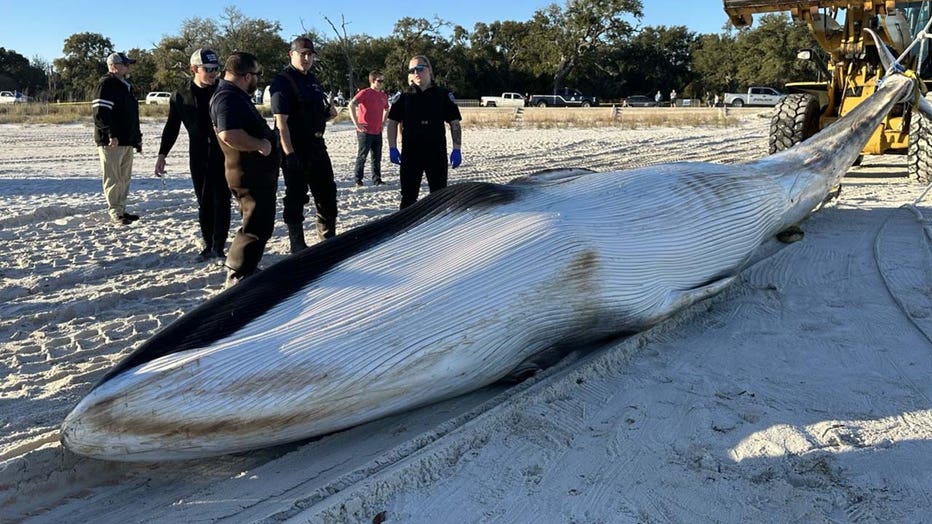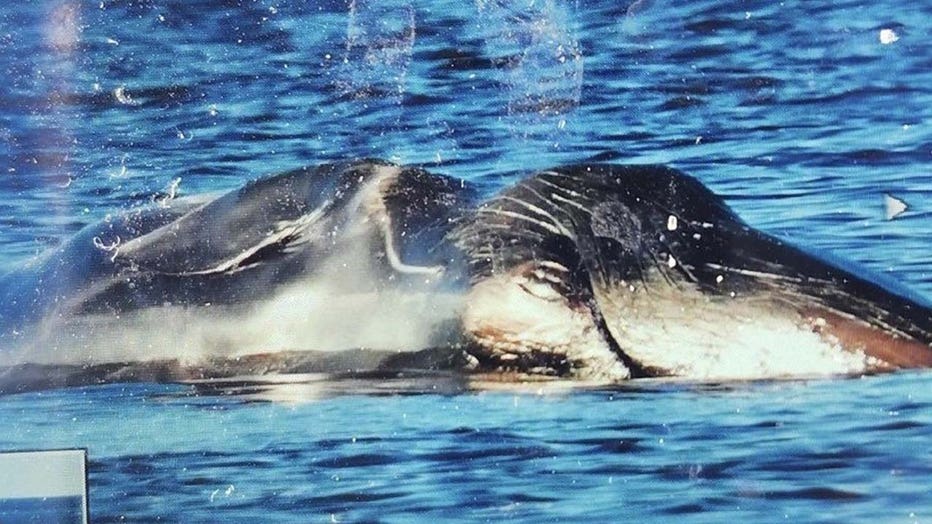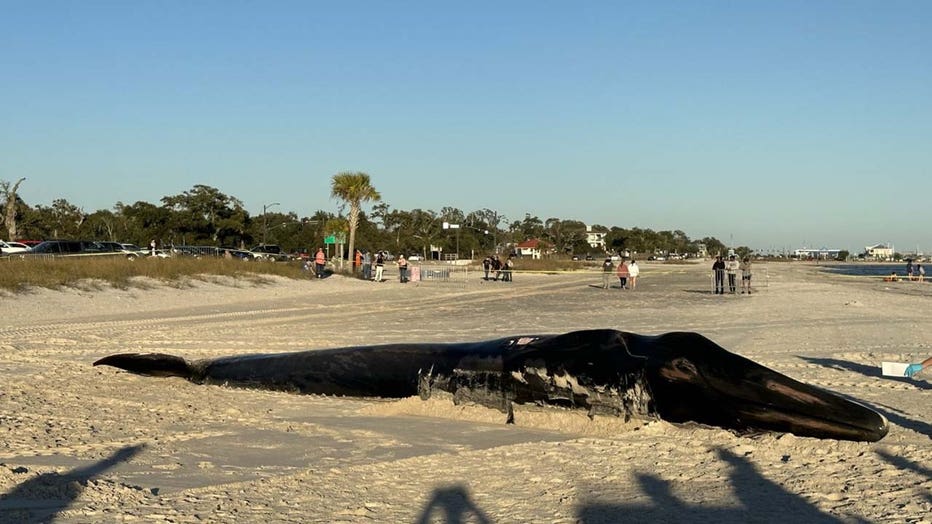30-foot fin whale found stranded, dead off Mississippi Gulf Coast: ‘A very rare species’
PASS CHRISTIAN, Miss. - A 30-foot fin whale has died after officials found it stranded off the coast of Mississippi Saturday morning.
The Institute for Marine Mammal Studies confirmed the news, posting photos to Facebook of the male whale that was found deceased in shallow water near the shoreline in Pass Christian on Jan. 7.
"This pelagic animal is very rarely seen in these waters," the institute wrote. "After extensive efforts, we were able to safely move the deceased whale out of the water and onto the beach. Once out of the water, we have a better understanding of the species, it is a Fin whale."
Photos show officials securing the carcass to move the whale out of the water, where a full necropsy — an animal autopsy — was performed the following day.

A 'Very rare' whale found dead, stranded near Mississippi Gulf Coast (Credit: The Institute for Marine Mammal Studies Gulf Port Mississippi)
"It was an interesting process because they were trying to do a necropsy on a whale that’s 12,000 pounds. It requires some talent and expertise," the institute’s director, Dr. Moby Solangi, told FOX Television Stations. "It’s a very rare species."
The necropsy found that the mammal was likely to be between 2 and 3 years old. A parasite was discovered near the animal’s heart and kidneys and the whale appeared to either have become sick or separated from its group. Since the whale did not sink and the body was fairly fresh, experts believe the mammal likely died close to the shore.
The whale’s cause of death is still unknown, but the institute said it is still working with its partners to better understand what happened to the marine animal.
Solangi said the discovery gives the institute the opportunity to do a scientific investigation and learn more about the species.

the male whale that was found deceased in shallow water near the shoreline in Pass Christian on Jan. 7. (Credit: The Institute for Marine Mammal Studies, Gulf Port, MS)
"Their health indicates the health of what’s going on in the ocean," he continued, adding, "Marine mammals are an indicator of the health of the environment. They are telling us a story. If you start seeing a large number of marine mammals start stranding — which is usually due to health reasons — that would mean that the oceans are having difficulty sustaining themselves and that eventually means we may not, as humans, may not be able to survive."
Several agencies assisted, including the City of Pass Christian, Harrison County Sand Beach, NOAA, U.S. Senator Cindy Hyde-Smith, state Senator Mike Thompson and the local community of the Gulf Coast.

The institute said it is still working with its partners to better understand what happened to the marine animal. (Credit: The Institute for Marine Mammal Studies, Gulf Port, MS)
Solangi said the head of the fin whale was preserved and will be displayed in a local museum.
Since 2002, there have only been three reported fin whale strandings in the Gulf of Mexico, and this is the first fin whale stranding reported in Mississippi.
RELATED: Killer whale found dead on Florida beach a first for Southeast, NOAA spokesperson says
According to the institute, the fin whale is the second-largest whale species on earth, second only to the blue whale. The endangered mammal gets its name from an easy-to-spot fin on its back, near its tail.
Fin whales can grow up to 85 feet and are typically found in deep, offshore waters in all major oceans, primarily in temperate to polar latitudes. They are less common in the tropics.
This story was reported from Los Angeles.

